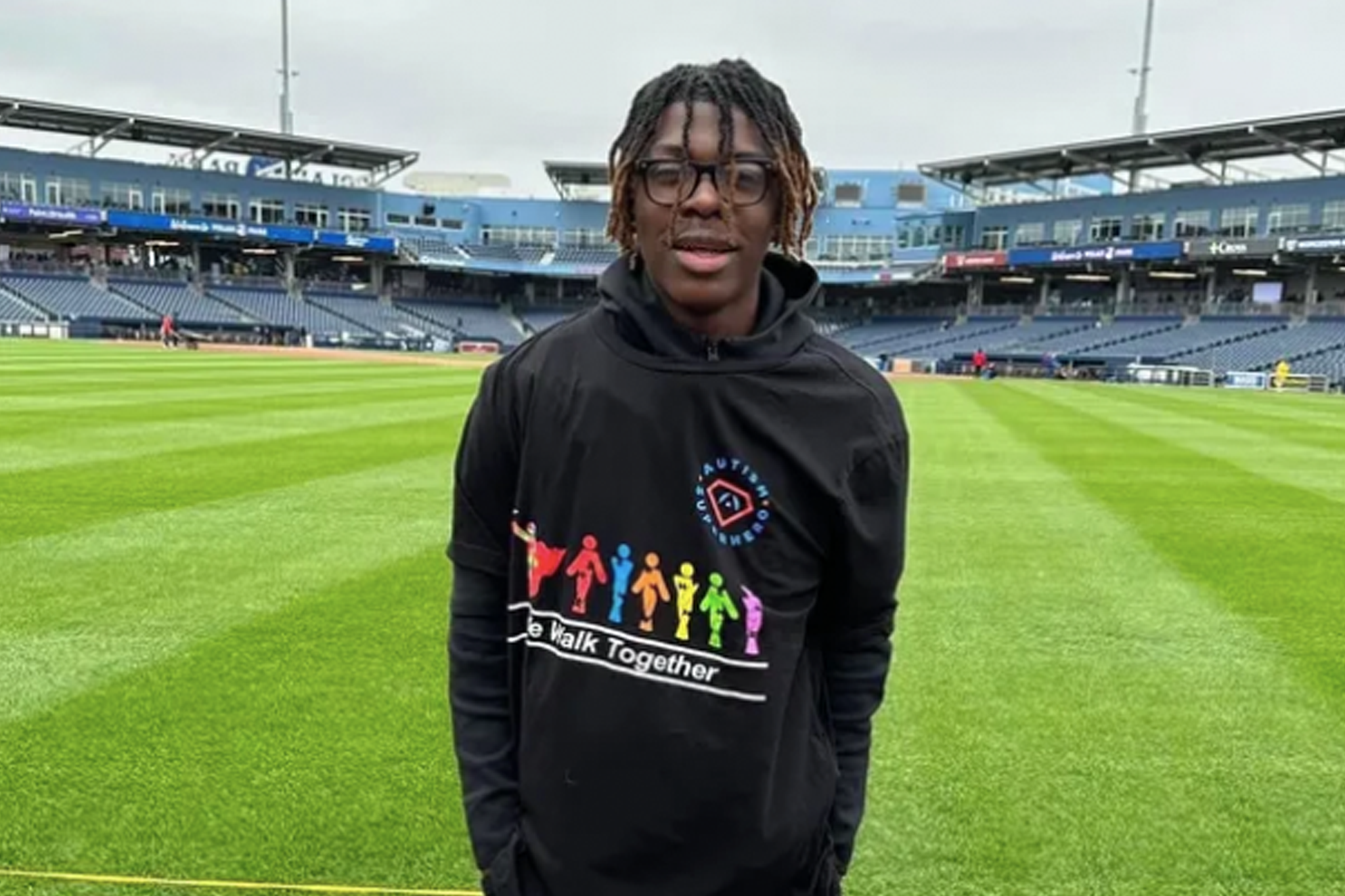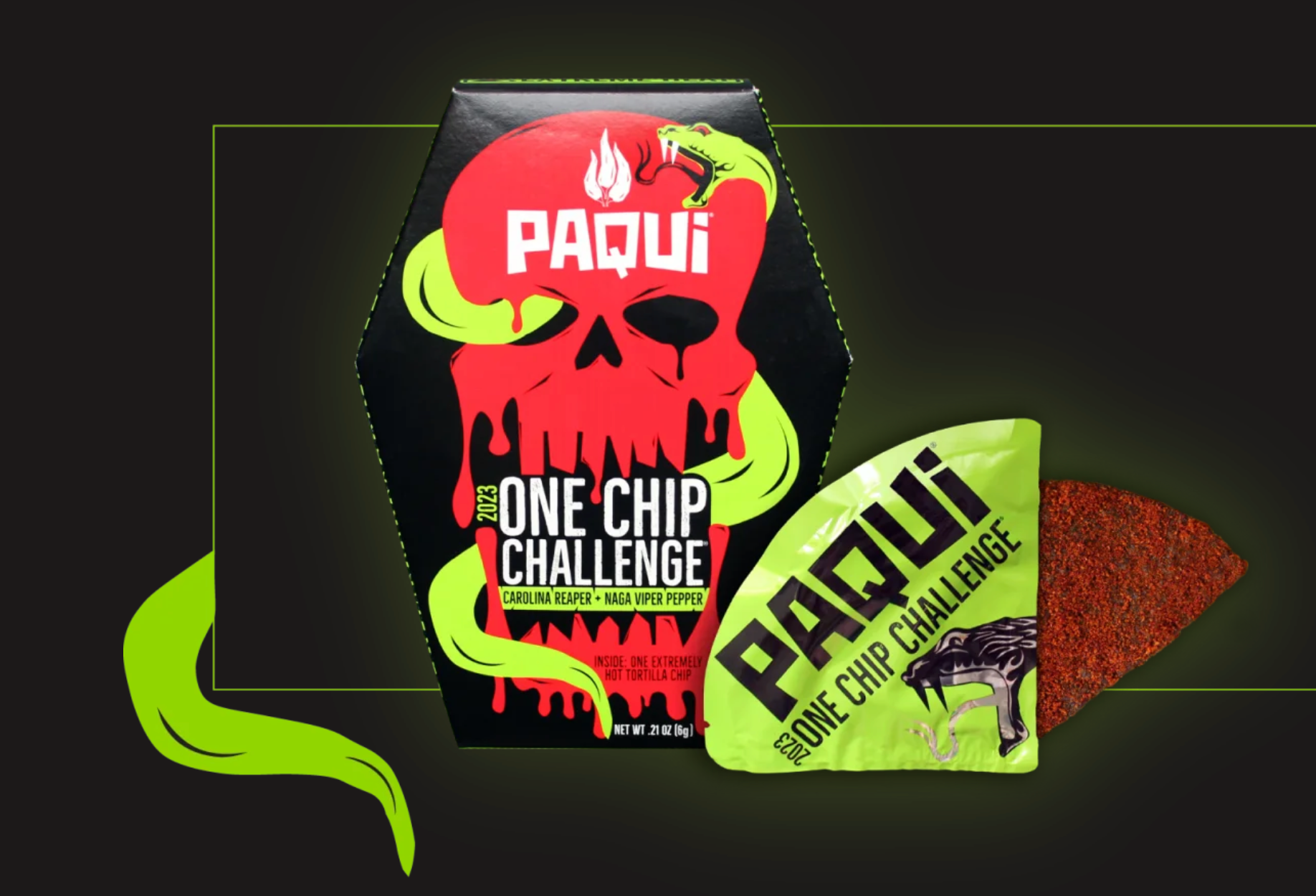Experts issue warning after high school student dies trying ‘One Chip Challenge’ viral dare
Food-based challenges can be especially harmful for people with certain health conditions, experts say

Experts are warning against a new viral challenge that left a 14-year-old high school student in Massachusetts dead.
The student, Harris Wolobah, died on 1 September after participating in the One Chip Challenge, a social media dare that involves eating a spicy chip and waiting as long as possible before drinking or eating anything else for relief.
The official cause of Harris’s death has not been revealed, as The Independent previously reported, but his family are warning other parents of what could happen if their children try the challenge.
The One Chip Challenge is a product of the brand Paqui, which makes tortilla chips. The challenge chip is only available in the US and Canada and can be ordered at the company’s website. It comes in a small, coffin-shaped package.
The Independent has reached out to Paqui for comment.
Per Paqui, the chip contains Carolina Reaper pepper and Naga Viper pepper. A warning label posted underneath the “Buy Now” and “Find Near You” buttons on the company’s website advises people to avoid the chip if they are “sensitive to spicy foods, allergic to peppers, night shades or capsaicin, or are pregnant or have any medical condition”. It also states that the chip should be left out of reach of children, and advises customers to wash their hands with soap after touching the chip. Paqui suggests that customers seek medical assistance if they experience difficulty breathing, nausea, or fainting after they eat the chip.
Harris’s family was reportedly informed by his school that he began to experience a stomach ache and fainted after eating the chip on 1 September. His mother, Louis Wolobah, went to the school to pick him up. “When I went there, he was lying down, and I said, ‘What was the chip you ate?’” Ms Wolobah said.
Harris reportedly started feeling better at home that afternoon, then passed out just before he was supposed to leave for basketball practice. He was pronounced dead at a local hospital.

Experts are cautioning that viral challenges like the One Chip Challenge are often dangerous. “Just because something is being flaunted on social media, especially TikTok, it doesn’t mean it is a smart move on an individual’s part,” Keri Gans, a New York-based registered dietitian nutritionist, told The Independent. “Everyone’s an individual — what one person’s body can tolerate might be completely different from what another person’s body can tolerate. It’s not worth the chance.”
Ms Gans said that though spicy foods are often viewed as a challenge to power through, they can pose real risks to certain people. “Pain is never a positive sign of anything. You shouldn’t feel pain when you eat a food,” she said.
According to the Cleveland Clinic, spicy foods can cause abdominal pain, chest pain, burning diarrhoea, headaches, and violent vomiting. Urgent care provider Allan Capin MD said in a Cleveland Clinic statement that “most people aren’t used to that level of heat and are going from zero to 100 when they do something like the ‘One Chip Challenge’, where you eat an extremely spicy tortilla chip. It’s like putting a bomb in your stomach if you’re not prepared for it.” Though it’s unlikely the hottest peppers can kill you, he added.
Spicy foods may be especially dangerous for people who aren’t used to them; who are genetically more sensitive to capsaicin; or who have gastrointestinal issues. Eating a large quantity of food that contains capsaicin may also put you at an increased risk for illness. People with indigestion or inflammatory bowel disease (IBD) should avoid eating spicy foods, per the Cleveland Clinic.
If you notice any severe symptoms after eating spicy foods, you should seek medical help immediately. However, if you’ve eaten something spicy and are experiencing more mild symptoms — like watery eyes or burning in your mouth — you should try eating bread or drinking lemonade or milk to relieve the symptoms.
Ms Gans said that you should thoroughly read any packaging labels before consuming a new substance. “If there’s a warning label, it’s there for a reason,” she said. “And people should follow it.”
Join our commenting forum
Join thought-provoking conversations, follow other Independent readers and see their replies
Comments


Bookmark popover
Removed from bookmarks